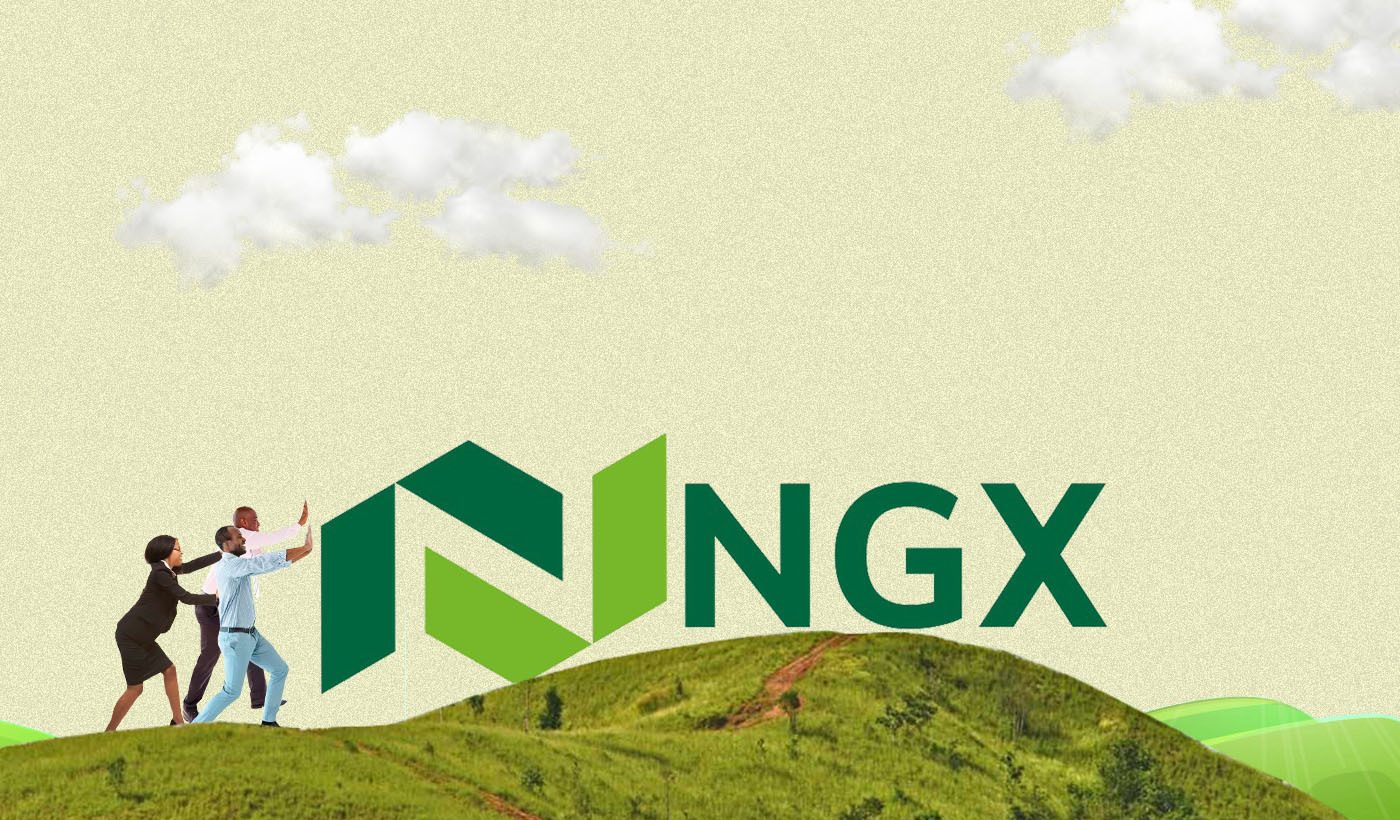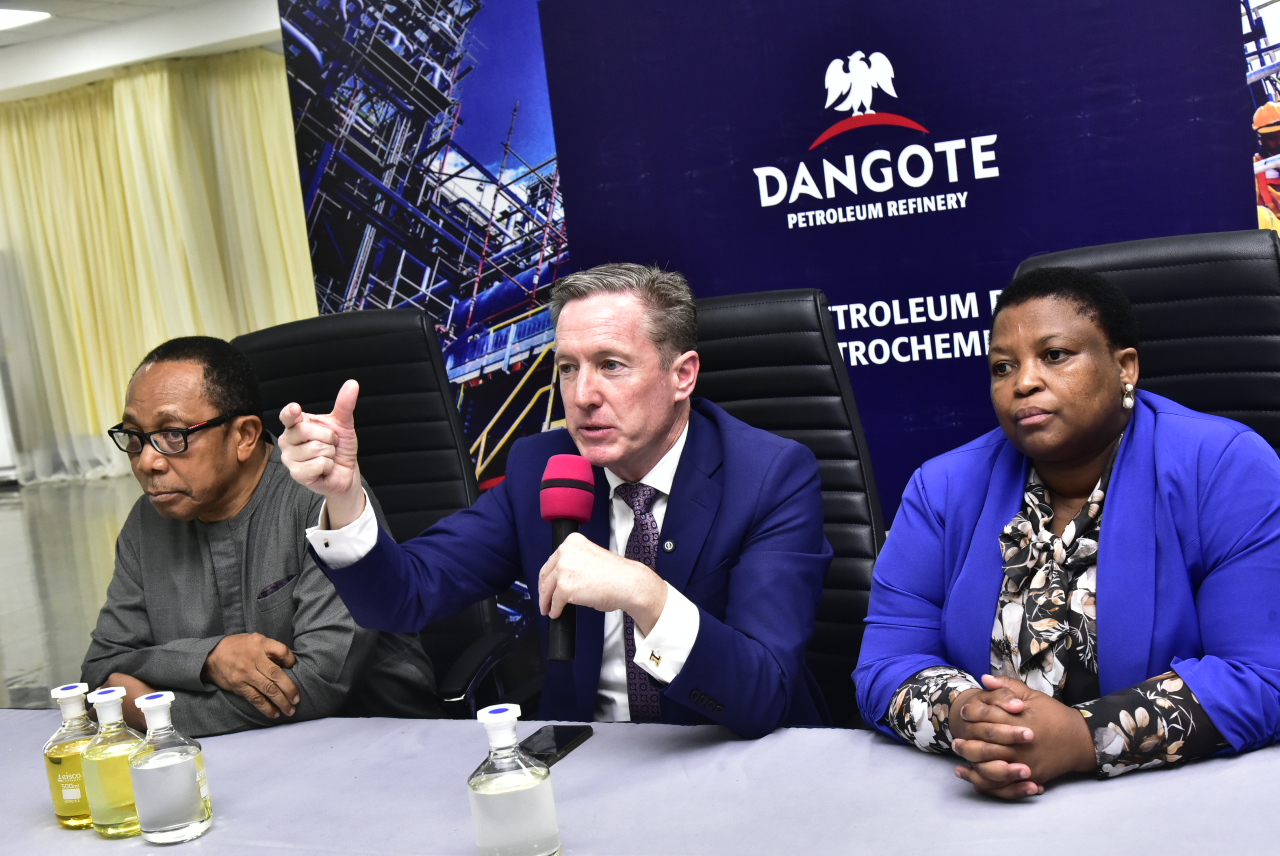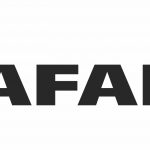Economy
Survey Foresees Further Growth for Africa’s Insurance Sector

By Modupe Gbadeyanka
The opportunities for growth in Africa’s insurance industry are huge despite recent economic and political uncertainty, a report issued by PwC on Africa’s insurance industry has said.
It noted that the insurance industry has done well to adapt to continuous disruption, with technological advances now considered the most important global trend disrupting the industry.
The report, titled ‘Ready and Willing: African insurance industry poised for growth,’ further said despite the additional pressures of unrelenting regulatory and insurance accounting changes, and the huge costs associated with the changes, there are also some positive developments and opportunities for growth.
The survey comes at a time when economies on the African continent are starting to show signs of real growth on the back of recovering global commodity prices.
Victor Muguto, Long-term Insurance Leader for PwC Africa says: “The insurance industry across Africa continues to be one of the most disrupted, but at the same time the industry continues to innovate and adapt to take advantage of the many opportunities for growth that are also emerging.
“In the years following the global financial crisis, economic and political uncertainty across the continent slowed down economic and insurance sector growth. Despite this, Africa’s insurance market remains one of the least penetrated in the world and the opportunities for growth are tremendous.”
Top trends driving change in Africa’s insurance markets
Africa’s insurance industry is facing more disruption than any other industry, posing challenges for some while opening up business opportunities for others. The pace of change in the insurance industry has taken place more rapidly than originally anticipated and will accelerate further.
“Leading insurers are already implementing key strategies to focus on new customer behaviours and demographic shifts. The need to be agile in the face of a rapidly changing technological environment has never been more vital,” says Pieter Crafford, Financial Services Advisory Leader for PwC South Africa.
The survey identifies four main themes that are transforming the African insurance industry:
Technology and data ‘revolution’: Technology and data are now considered the most important global trend disrupting the industry, but they are also increasingly being used by the industry to accelerate growth. Across all of Africa, the increased use of technology, on the back of the exponential growth of mobile phones, has significantly contributed to the large amount of new customers and more tailored products. Technology presents insurers with powerful tools to better understand customer needs and expectations through data mining capabilities and artificial intelligence (AI).
However, it is expensive and not always easy for insurers to “go it alone”. Consequently, some insurers have formed partnerships with technology companies to improve operational efficiency and respond quickly to changing customer expectations. Technology, specifically mobile phones, social media, and data analytics are seen as the top enablers to increase access to new customers, at reduced cost and to analyse behavioural data, in order to design new, more appropriate products.
Regulatory and accounting changes: Behind technology, insurers also identified stringent risk based prudential capital and market conduct regulations as the second most disruptive issue. By now, most insurers are used to regulations and this has become “business as usual”. Insurers across the African continent have embraced the regulatory changes, and are ready and willing to comply with new legislation and regulations. But, while most insurers have adopted new ways of compliance, the introduction of IFRS 17 is also expected to add new pressure.
It is also positive to note that that the intensity of regulatory concerns is reducing among insurers. Fewer survey respondents (2017:61%) had concerns about the burden of regulation dampening risk appetite and stifling growth compared to 90% of respondents in 2014. Although the unrelenting regulatory changes come with increased costs and implementation challenges, they also present hidden opportunities for insurers to better manage risk, and allocate capital more appropriately. Some of the new regulations are expected to prompt insurers to redesign simpler and more appropriate products for customers. For example, the less onerous regulatory capital and conduct regulations being introduced by the pending Microinsurance framework in South Africa offer alternatives to reduce the costs of insurance at the lower end of the market
Convergence, the new “Scramble” for Africa’s customers: Changing demographics and social changes, in particular the rise of a middle class, are driving insurers, bankers, and non-traditional players such as retailers and mobile operators to compete for the power of owning customers and customer information. We have started to see a convergence of insurers and bankers around customers. While most of the major banks have had insurance operations for years, there has been a renewed interest by other banks to also start insurance operations. Likewise, some insurers are setting up separate banking operations, and mobile phone operations and retailers are pushing in. All of this is with the aim of owning more customers and cross selling various products to them.
In addition, insurers are also adopting multichannel distribution strategies and taking more direct ownership of their customer data and relationships. They are designing simpler products leaning towards technology based direct mobile and online channels of distribution. While the more complex products will still require intermediation, the use of brokers may gradually reduce as insurers invest in their own in-house channels.
Talent shortages – workforce of the future: Insurers also highlighted talent shortages as a top issue in our survey. This is notable in the areas of technology and actuarial skills. In order to attract and retain talent, insurers need to invest more in training their “workforce of the future”. Alongside this, employee expectations are changing. Employees of the future expect better work-life balance. The majority of insurers surveyed are already prepared for change, with 83% of survey respondents indicating that they either had prepared or were moderately prepared to establish a more flexible working culture to support employee work-life balance.
Insurers should not only be thinking about or investing in a workforce of the future. They should also start thinking about jobs that may not yet exist.
While the African insurance industry is going through significant change and client expectations are changing the rise of the new middle class and digital natives offers new opportunities for insurers, using technology, to better understand their customers and use customer data for more relevant product design and better pricing for risk. Insurers need to ensure that they can do so while navigating increasing regulatory compliance issues, overhauling legacy IT systems, and investing in a workforce of the future. Operational procedures and business structures will also need to be updated to become more efficient.
“Insurers across Africa face exciting new opportunities for growth on the back of a rising middle class and increased demand for new and innovative solutions. Most insurers know what to do – the winners will be those that are best at execution,” Crafford says.
“Insurers, who are client-centric, innovative, technologically up-to-date, and who invest in a workforce of the future, will lead the charge to increase insurance penetration levels in Africa,” Muguto concludes.
Economy
Selective Buying in Bellwether Stocks Further Raises NGX by 1.28%

By Dipo Olowookere
The decision of investors to cherry-pick stocks with sound fundamentals across categories further lifted the Nigerian Exchange (NGX) Limited by 1.28 per cent on Wednesday.
This selective buying of equities was inspired by the earnings season, as companies that have already released their 2025 financial statements have impressed market participants.
However, the insurance sector experienced profit-taking yesterday, causing its index to go down by 0.84 per cent at the close of business.
But this loss was offset by the 2.33 per cent growth achieved by the banking index, with the other remaining sectors also closing in green. The energy industry appreciated by 1.52 per cent, the industrial goods landscape expanded by 1.20 per cent, and the consumer goods counter improved by 1.09 per cent.
As a result, the All-Share Index (ASI) went up by 2,128.61 points to 168,030.18 points from 165,901.57 points and the market capitalization rose by N1.366 trillion to N107.861 trillion from the previous day’s N106.495 trillion.
Yesterday, 53 equities ended on the advancers’ chart and 26 equities finished on the laggards’ table, indicating a positive market breadth index and strong investor sentiment.
DAAR Communications led the gainers’ group after it surged by 10.00 per cent to sell for N1.87, Berger Paints appreciated by 10.00 per cent to N66.00, Fortis Global Insurance advanced by 10.00 per cent to 22 Kobo, RT Briscoe also jumped by 10.00 per cent to N10.45, and First Holdco improved by 9.92 per cent to N48.75.
Conversely, Red Star Express led the losers’ gang after it went down by 9.97 per cent to N17.15, Deap Capital also fell by 9.97 per cent to N6.86, Union Homes REIT slipped by 9.95 per cent to N69.25, McNichols dipped by 9.93 per cent to N6.53, and eTranzact lost 9.89 per cent to trade at N16.85.
At the midweek’s session, traders transacted 694.8 million shares worth N20.6 billion in 42,095 deals compared with the 736.4 million shares valued at N24.7 billion traded in 46,026 deals a day earlier, showing a shortfall in the trading volume, value, and number of deals by 5.65 per cent, 16.60 per cent, and 8.54 per cent, respectively.
Chams ended the day as the busiest stock after trading 57.4 million units worth N256.3 million, Universal Insurance transacted 56.2 million units valued at N88.8 million, First Holdco exchanged 35.3 million units for N1.7 billion, Deap Capital traded 26.8 million units valued at N187.0 million, and Wema Bank sold 26.7 million units worth N674.6 million.
Economy
Oil Prices Climb 3% on US-Iran Talk Jitters

By Adedapo Adesanya
Oil prices surged about 3 per cent on Wednesday after it was reported that planned talks between the United States and Iran on Friday could collapse.
Brent futures grew by $2.13 or 3.16 per cent to $69.46 a barrel, while the US West Texas Intermediate (WTI) futures gained $1.93 or 3.05 per cent to trade at $65.14 per barrel.
The US and Iran had agreed to meet on Friday in Istanbul, with other Middle Eastern countries participating as observers.
However, the Iranians said on Tuesday that they wanted to move the talks to Oman and hold them in a bilateral format, to ensure that they focused only on nuclear issues and not other matters like missiles that are priorities for the US and countries in the region.
US officials were at first open to the request to change the location but then rejected it.
Later, the talks scheduled for Friday were back on, after several Middle Eastern leaders urgently lobbied the Trump administration on Wednesday afternoon not to follow through on threats to walk away.
The talks will be held in Muscat, the capital of Oman, on Friday.
The tensions between the US and Iran and heightened fears of potential disruption to oil flows through the Strait of Hormuz, where 20 per cent of the world’s oil supply passes through.
Members of the Organisation of the Petroleum Exporting Countries (OPEC) such as Saudi Arabia, Iran, the United Arab Emirates, Kuwait and Iraq export most of their crude via the strait.
Recall that the US military on Tuesday shot down an Iranian drone that aggressively approached a US aircraft carrier in the Arabian Sea. Separately, a group of Iranian gunboats approached a US-flagged tanker north of Oman.
The US Energy Information Administration (EIA) said on Wednesday that US crude stocks fell last week as a winter storm gripped large swaths of the country.
US crude oil inventories fell by 3.5 million barrels to 420.3 million barrels last week, as oil output slid to the lowest level since November 2024, the EIA said.
The EIA’s data release follows figures by the American Petroleum Institute (API) that were released a day earlier, which suggested that crude oil inventories fell by a colossal 11.1 million barrels.
Economy
Dangote Refinery Denies Importing Petrol, Diesel into Nigeria

By Modupe Gbadeyanka
Dangote Petroleum Refinery and Petrochemicals has described reports making the rounds that it was importing finished petroleum products like premium motor spirit (PMS), otherwise known as petrol, diesel, and others into Nigeria as false and misleading.
In a chat with newsmen on Wednesday, the company clarified that what it brought into the country were merely intermediate or semi‑processed materials, which it emphasized is a standard practice within the global refining industry.
Intermediate materials—such as naphtha, straight‑run gas oil, vacuum gas oil (VGO), reformate, alkylate and isomerate—serve as feedstock for additional refining into finished fuels like petrol and diesel, as well as petrochemicals.
The chief executive of the facility, Mr David Bird, told journalists in Lagos that as a state‑of‑the‑art and large‑scale merchant refinery, DPRP refines crude oil and processes intermediate feedstocks into premium petroleum products and petrochemicals that meet the highest international standards, noting that this practice does not amount to importing finished petroleum products.
Mr Bird highlighted that Dangote Refinery operates using a European and Asian merchant refinery model, which integrates advanced refining, blending and trading systems designed to meet modern quality and environmental benchmarks.
“DPRP produces high‑quality fuels aligned with international environmental and health standards. Our gasoline is lead‑free and MMT‑free with 50 parts per million sulphur, while our diesel meets ultra‑low sulphur specifications. These standards help reduce emissions, protect engines, and safeguard public health,” the chief executive stated.
Mr Bird reaffirmed that the Dangote Refinery supplies only fully refined, market‑ready products, adding that semi‑finished fuels are unsuitable for vehicles and are therefore not released into the Nigerian market. Samples of both intermediate feedstocks and fully refined products were displayed to journalists during the briefing.
He further noted that the refinery was established to end years of exposure to substandard fuel in Nigeria by providing products that meet stringent global standards, adding that DPRP’s products are now exported to international markets, highlighting their quality and competitiveness.
The refinery chief stressed the company’s commitment to transparency in its operations and engagements with regulators, urging the media to help properly educate the public on the clear distinction between intermediate products and finished fuel.
“It is unfortunate that some individuals are deliberately spreading misleading narratives about a refinery that has transformed Nigeria and the West African region from a dumping ground for substandard fuels into a hub for high‑quality products,” he said, adding that the refinery’s flexible design allows it to process a diverse mix of crude oils and intermediate feedstocks into premium finished fuels.
Mr Bird assured Nigerians of sustained product availability, noting that the refinery has contributed significantly to easing fuel scarcity, stabilising the naira, and reducing pressure on foreign exchange.
On his part, the Chief Brand and Communications Officer of Dangote Industries Limited, Mr Anthony Chiejina, urged journalists to be precise in their choice of terminology, warning that inaccurate reporting could misinform the public and create unnecessary panic.
-

 Feature/OPED6 years ago
Feature/OPED6 years agoDavos was Different this year
-
Travel/Tourism9 years ago
Lagos Seals Western Lodge Hotel In Ikorodu
-

 Showbiz3 years ago
Showbiz3 years agoEstranged Lover Releases Videos of Empress Njamah Bathing
-

 Banking8 years ago
Banking8 years agoSort Codes of GTBank Branches in Nigeria
-

 Economy3 years ago
Economy3 years agoSubsidy Removal: CNG at N130 Per Litre Cheaper Than Petrol—IPMAN
-

 Banking3 years ago
Banking3 years agoSort Codes of UBA Branches in Nigeria
-

 Banking3 years ago
Banking3 years agoFirst Bank Announces Planned Downtime
-

 Sports3 years ago
Sports3 years agoHighest Paid Nigerian Footballer – How Much Do Nigerian Footballers Earn
















